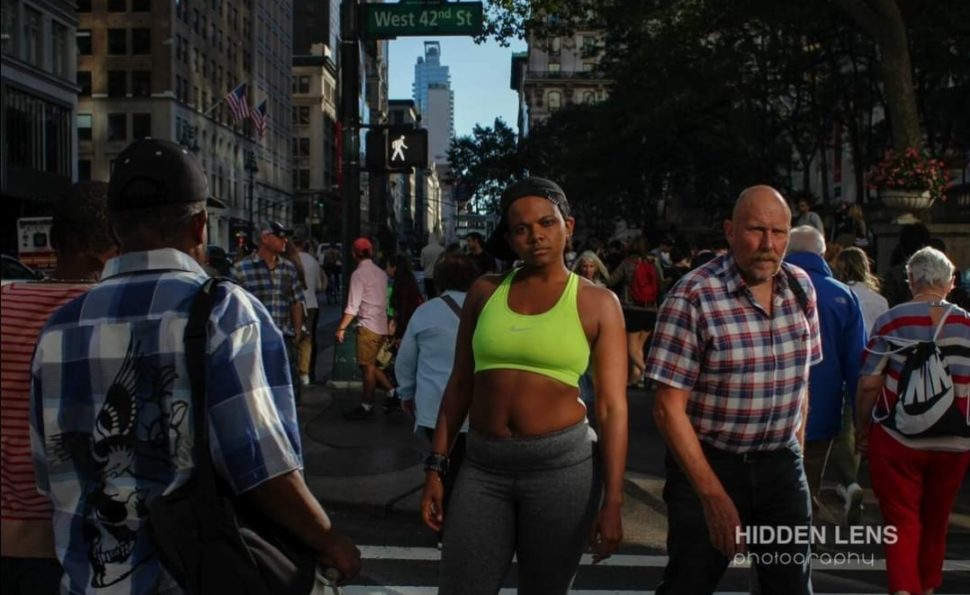I’ve been privileged enough to travel since I was a toddler, and it’s shaped my life more than I can articulate. But as I’ve grown and become more aware of the inequality in the world, I understand why folks from marginalized communities might not want to “up and go” wherever they please without forethought. If you’ve never had to worry about danger because of who you are, you’re lucky.
I recall listening to a white friend talk about wanting to take a road trip across the US. He did shorter ones before, specifically New York to Florida, but he’d never gone from the East Coast to the West. The US has natural beauty, from the Catskills to the Grand Canyon. There are rivers and lakes, deserts and forests, and so much more. To see all of this by car sounded wonderful, and my friend was determined to do it, even if it meant going alone.
Alone, eh? I couldn’t help feeling a tad jealous, and not just because my job wouldn’t give me enough time off to join him. But I’ve heard enough and seen enough to know that doing a road trip by myself isn’t an option for me as a Black woman. Before you attribute that to paranoia, bear in mind that there is historical basis for my position.
If I decided to drive across the US alone, what if my car malfunctioned in one of the sundown towns? Would I feel comfortable enough to knock on a stranger’s door to ask for help? Would I even make it that far before the person shot me for wandering onto their property? Or if they called the police, would I emerge from the experience alive? If you think I’m alone in these concerns, Google will populate countless articles written by Black people expressing the same ones. There’s a long-standing, obvious pattern.
Reading about the sundown towns and how they came to be is unsettling enough. Knowing that the hatred of Black people is as palpable now as it ever was is worse. Signs that explicitly stated, “No Blacks Allowed,” have a new guise in modern times. There are Confederate flags and stickers on vehicles. Nazi and white supremacist imagery. Posters on lawns stating that the former president was robbed of the election, or rooting for him to run in 2024. The moment I see these, I know I’m not welcome.
The thing is, I don’t have to journey very far to see any of that. Many years ago, when I was grossly misinformed, I used to think that the bulk of the racism was in the southern states. But I can just as easily be called the n-word in parts of New Jersey, Pennsylvania, and yes, even New York.

When preparing for overseas travel, I like to do my research first. On principle, I avoid very religious countries, those who subjugate women, and those with dismal records on LGBT+ rights. It isn’t about expecting complete safety, after all, every place has its issues. But cities like Paris, Amsterdam, London and Barcelona are pretty progressive, hence why I’m comfortable going there. Also, the chances of being penalized for my sexuality are pretty remote. Sure, I could hide my attraction to women if absolutely necessary, and it wouldn’t be hard since I like men too. But I’d rather be out and proud with my queerness because it’s intrinsic to who I am.
With the worst of the pandemic in the rearview mirror, I’m making it a point to travel to new places domestically and internationally. I went to Atlanta for the first time last November, and I knew before leaving Hartsfield- Jackson Airport, which has so many nods to Black history, that I would return. This May, I’m going to St. Lucia and Dominica, and that’s sure to be an adventure, filled with hiking, swimming, and soaking up the island vibes. A trip to the Caribbean is beyond overdue; the last time I was there was St. Martin in 2013.
I’ve found that the Black travel groups on social media are invaluable sources of information. We share photos of places we’ve been and places we’d like to go. We ask for and give advice. We make plans to link up with each other in other states and countries, allowing relationships of all kinds to blossom. If you have reservations about traveling because of the color of your skin, you won’t be scolded by another member for being too sensitive as you might be in non-Black spaces. We know anti-Blackness is a global issue, so it’s important to know how to navigate that as best we can.
As for the friend I mentioned at the start of this article? It’s not that he doesn’t have any awareness- we wouldn’t be friends if he didn’t. But he views the world from a white man’s perspective, meaning that somewhere along the line, he’s going to miss things I don’t have the leeway to miss. Our experiences and how we are perceived are radically different, and that’s just the reality. My circle of white friends is very small, but if I did a road trip across the US, I’d want at least one in the car with me. Without that buffer, there’s too much risk of something going awry.





